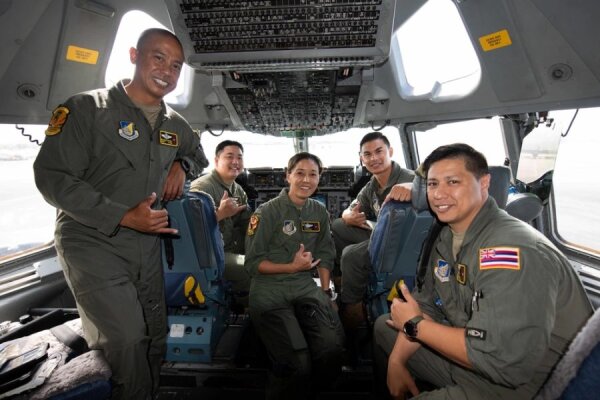Air Force Waves Positive THC Tests

10/06/2023
The U.S. Air Force is making critical strides to address its recruitment shortfall. In a bold move, the military branch has seen a surge in enlistments after introducing a pilot program granting waivers for applicants who initially tested positive for Tetrahydrocannabinol (THC), the active compound in marijuana.
The Air Force, which had anticipated only 50 such cases yearly, granted 165 waivers within the first year. This outcome represents a threefold increase in their initial expectations, offering a lifeline for the service that fell short of its active-duty recruiting target by 11% in the last fiscal year - the first time since 1999.
The THC waiver scheme is a game-changer. Gen. Christopher Amrhein, Air Force Recruiting Service Commander, believes the situation could have been significantly worse without such policy shifts. "Allowing a second test in the recruiting process is the right thing to do. For FY23, this change allowed us to bring in approximately 165 additional high-quality airmen," Amrhein stated.
Despite marijuana's state-by-state legalization, it remains a Schedule I drug at the federal level. Yet, the military has shown leniency towards marijuana compared to other Schedule I narcotics like ecstasy, heroin, or methamphetamines. The majority of new recruits hail from states where marijuana use is at least legal for medicinal purposes.
The pilot program, unveiled in September 2022, was inspired by the Army and Navy's previous initiatives. It provides applicants with a chance to retest after 90 days if they receive a waiver. Applicants must score well on the Armed Forces Qualification Test, have a high school diploma, and have no other potential recruitment barriers such as medical or past legal issues.
The arrival of the waiver program coincides with the military's struggle to find fit, healthy, and sober young Americans for service. A 2021 Pentagon study reveals that 77% of young Americans wouldn't qualify for military service without a waiver due to factors like drug use, obesity, or mental and physical health issues. The THC waiver program is a step in the right direction toward addressing this challenge.
Reference
The Air Force, which had anticipated only 50 such cases yearly, granted 165 waivers within the first year. This outcome represents a threefold increase in their initial expectations, offering a lifeline for the service that fell short of its active-duty recruiting target by 11% in the last fiscal year - the first time since 1999.
The THC waiver scheme is a game-changer. Gen. Christopher Amrhein, Air Force Recruiting Service Commander, believes the situation could have been significantly worse without such policy shifts. "Allowing a second test in the recruiting process is the right thing to do. For FY23, this change allowed us to bring in approximately 165 additional high-quality airmen," Amrhein stated.
Despite marijuana's state-by-state legalization, it remains a Schedule I drug at the federal level. Yet, the military has shown leniency towards marijuana compared to other Schedule I narcotics like ecstasy, heroin, or methamphetamines. The majority of new recruits hail from states where marijuana use is at least legal for medicinal purposes.
The pilot program, unveiled in September 2022, was inspired by the Army and Navy's previous initiatives. It provides applicants with a chance to retest after 90 days if they receive a waiver. Applicants must score well on the Armed Forces Qualification Test, have a high school diploma, and have no other potential recruitment barriers such as medical or past legal issues.
The arrival of the waiver program coincides with the military's struggle to find fit, healthy, and sober young Americans for service. A 2021 Pentagon study reveals that 77% of young Americans wouldn't qualify for military service without a waiver due to factors like drug use, obesity, or mental and physical health issues. The THC waiver program is a step in the right direction toward addressing this challenge.
Reference







